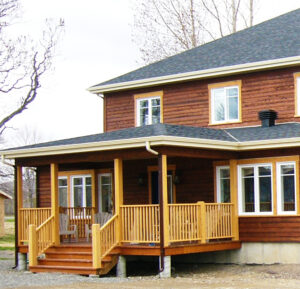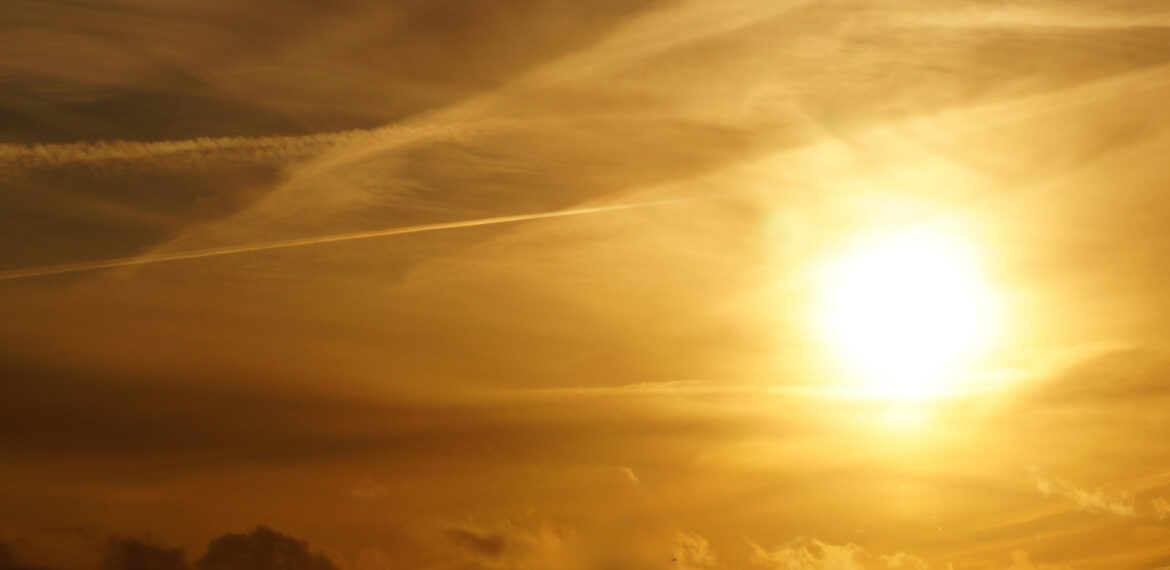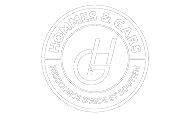Lull in the Storm: An Anchor for Better Health
 Some of us experience moments when everything goes sideways, when we are feeling helpless, in a state of crisis. And at such times, it is important to seek help, for example, in one of the region’s mental health shelters, like Centre Accalmie. “The understanding, the interest shown in me, the active listening: my stay was a great help. My counsellor was like a spark for me,” explains Louis, who found help from this organization when he was going through a depression episode. How does Centre Accalmie help people? We discussed this with Dominique Bouchard, General Manager of Centre Accalmie and President of the Regroupement des organismes communautaires et alternatifs en santé mentale de la Gaspésie-Îles-de-Madeleine (ROCASM-GÎM).
Some of us experience moments when everything goes sideways, when we are feeling helpless, in a state of crisis. And at such times, it is important to seek help, for example, in one of the region’s mental health shelters, like Centre Accalmie. “The understanding, the interest shown in me, the active listening: my stay was a great help. My counsellor was like a spark for me,” explains Louis, who found help from this organization when he was going through a depression episode. How does Centre Accalmie help people? We discussed this with Dominique Bouchard, General Manager of Centre Accalmie and President of the Regroupement des organismes communautaires et alternatifs en santé mentale de la Gaspésie-Îles-de-Madeleine (ROCASM-GÎM).
What is the Centre Accalmie?
The name Accalmie immediately brings to mind a moment of peace, when light reappears, and solutions illuminate problems and difficulties. And that’s exactly what Centre Accalmie aims to offer: an emergency shelter for people in difficulty. It is located in Pointe-à-la-Croix, “in a calm, restful environment, on the riverbank, where you can relax and give yourself the resources you need to get better,” explained Dominique.
Centre Accalmie receives people living with “mental health problems, addictions, difficult family situations, people who have been through the justice system, who are homeless, or who are experiencing severe and serious disorders,” mentioned the General Manager.
The house accommodates 8 beds and benefits from a solid team of qualified professionals who offer support and coaching.
At Centre Accalmie, “we start from the person’s experience to offer them a space to explore what they’re going through and give them the tools to make things better. We use alternative practices and try to cover all the areas of a person’s life,” she explained.
Fill up your Toolbox
And if someone asks for help at Centre Accalmie, what can they expect? “The average stay is 15 days. Each person has a designated caseworker and will meet with him or her 4 to 5 times a week, unless there is a crisis, in which case it would be more often. The person seeking help must be 100% involved. We develop an action plan to help them determine what they are looking for at Centre Accalmie: what they want to work on or eliminate from their lives,” Dominique stated.
She explained that the centre offers a framework, a structure “for getting back into good living habits. You have discussions, walks, meetings with your caseworker and creative activities.”
For example, drawing and singing workshops are offered to our guests. “There are some for whom this really resonates with them. We try out different things like that to fill the toolbox of people who come to our shelters,” she said.
Centre Accalmie also offers life within a group. “I often hear laughter in the house. The group discussions and activities mean that people will help each other. It is also part of the process to exchange with others, to get to know something new. Sometimes, it is through contact with others that people say to themselves: Okay, I will roll up my sleeves, I too can make something of my life,” she added.
Help that Reaches Out to Men
At Centre Accalmie, 2 out of 3 people who come for help are men. Why is that? “I think men come here because they get fast, concrete service. They get shelter and we take real action to help them overcome their difficulties. We tell them the truth. We listen. We are in the real world. The men say to us, “It’s great because you welcome us without judgement, we feel welcome as we are,” replied the General Manager.
“I’ve had a lot of testimonials from people saying to me: if I hadn’t found the Centre Accalmie along the way, I wouldn’t be here today. It speaks volumes,” she confided.
“Asking for help takes a lot of courage. I often say: you had the courage to knock on our door, you should be proud of yourself. We are here to help you through this crisis,” she added.
Strategies for Taking Care of Yourself
Welcoming, understanding and committed, Dominique clearly takes people’s well-being to heart. So, we asked this specialist in the field of helping relationships for some simple, everyday tips on how to take care of ourselves and our mental health. The Centre Accalmie web site offers a few tools which, among other things, focus on leisure activities as a way of taking a break from everyday problems and feeling good. Taking free drawing classes, listening to pleasant music, or filling in a gratitude booklet are just a few examples.
Dominique also presents a tool that she leaves at people’s disposal at the Centre Accalmie. A small card (in French) that you can print out, cut out and leave in your wallet. The card says something important to remember: we are never alone. No matter where we are, there is someone available to listen to us in a caring, non-judgmental way. Free, confidential help is available at all times. Several helpful resources are presented on this card, including these.
And of course, if you feel that you are in a crisis and need to find guidance and support to get better, please contact the Centre Accalmie.
“If I ever feel the need to talk to someone I trust and who is a good listener, I make a promise to myself… I will call! Now I know that there is no shame in seeking help if my tools are not enough,” said Mathieu, who has used the Centre Accalmie services.
Help is available. There will always be a hand willing to reach out to you. Dare to take it.
To Learn More About ROCASM-GÎM
Center Accalmie is not alone. Other mental health organizations in the region offer the same kind of services, or complementary ones. They are members of the Regroupement des organismes communautaires et alternatifs en santé mentale de la Gaspésie-Îles-de-Madeleine (ROCASM-GÎM). Shelters and day centres are included among the member organizations: Centre Émilie Gamelin, CRRI, Centre communautaire l’Éclaircie, La Maison à Damas, La Passerelle, Le Sentier de l’Espoir, Groupe d’action sociale et psychiatrique des monts (GASP) and, of course, Centre Accalmie. There is also the Droits et Recours Santé Mentale Gaspésie-Les-Îles and Nouveau regard, a regional organization for loved ones of people with mental health problems.
To learn more about ROCASM-GÎM, you can view the presentation videos on this page (in French).









